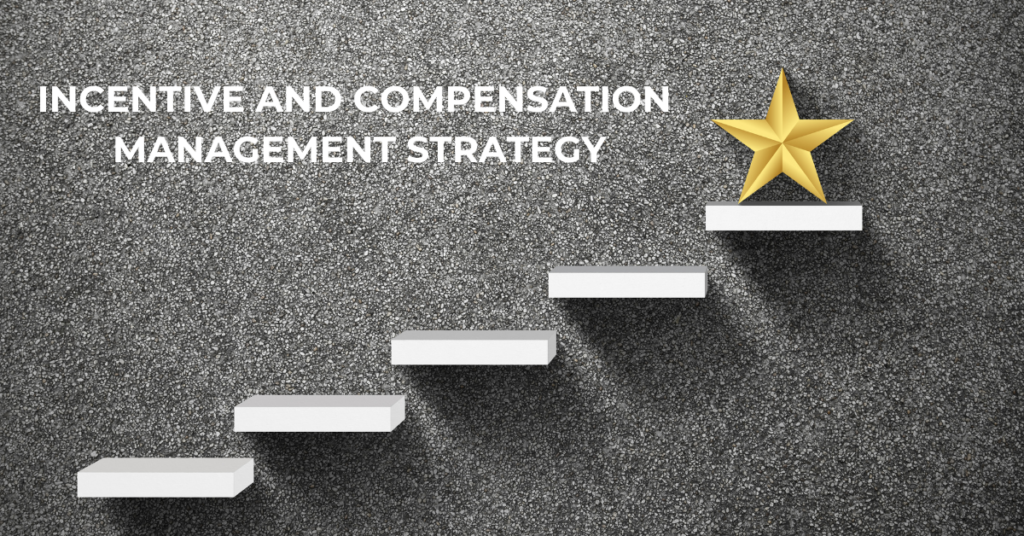All You Need to Know About Incentive Compensation Management & its Importance

- What is Incentive Compensation Management, and How Does it Differ From Traditional Compensation Methods?
- How Can Incentive Compensation Management Impact Employee Morale and Productivity?
- What are Some Best Practices for Implementing an Effective Incentive Compensation Management Strategy?
- How Can HR Professionals Measure the Success of Their Incentive Compensation Programs?
- What are the Potential Risks or Challenges Associated With Incentive Compensation Management?
It is no secret that a happy workforce is necessary to drive success in every organization. A large part of day-to-day operations involves managing employees and keeping them motivated. There is no better way to do so than to incentivize employees. It is imperative for an organization to offer lucrative rewards in today’s competitive business landscape. For instance, workers who are unsatisfied with their benefits package are more likely to leave the organization than those who are satisfied, as per a survey conducted by Deloitte in 2022. But what is Incentive Compensation Management (ICM), and how can it unlock the potential of your workforce? We answer these questions in this deep dive into the world of ICM and explore its core tenets along with its significance in enterprise compensation management.
What is Incentive Compensation Management, and How Does it Differ From Traditional Compensation Methods?
Incentive compensation management is a strategic approach where an organization designs compensation plans that remunerate employees based on their performance or achievement of specific goals or targets. It is different from traditional compensation methods in the following ways:

1. Focus on Performance
A company relies on individual performance metrics to dole out rewards under incentive compensation management. It considers metrics such as sales targets, customer satisfaction, etc. Conversely, traditional compensation methods consider factors like tenure or job title.
2. Alignment With Company Goals
The approach under incentive compensation management ensures that employees’ efforts are in service of company goals. However, there is no need to link compensation to the firm’s objectives.
3. Variable Pay Structures
An employee’s contract often includes variable pay components, such as bonuses, commissions, or profit-sharing under incentive compensation management. These factors are contingent upon meeting certain criteria as opposed to traditional compensation methods that use fixed salaries.
4. Allows Flexibility
It is easier to tune a company’s enterprise compensation management using ICM than traditional compensation structures. The former can be adjusted to adapt to changing business conditions or strategic priorities, whereas the latter is more rigid.
ALSO READ: What is Compensation Management? Definition & Examples
How Can Incentive Compensation Management Impact Employee Morale and Productivity?
Compensation management, especially ICM, has a significant impact on both employee morale and productivity. Let’s see how:
1. Boosts Morale
Incentives are the company’s way of appreciating an employee’s contributions. Their primary benefit is that they help to boost morale, which is a key objective of compensation management. They allow employees to attain a sense of achievement and drive them to increase their output. Most importantly, a company should boost morale by distributing incentives without bias. It is possible to link incentives to performance under incentive compensation management, which, in turn, fosters trust.
2. Improves Productivity
A firm can enhance productivity under ICM because incentives are aligned with achieving specific results. This ensures employees are motivated to increase their output to be eligible for incentives. The approach also encourages healthy competition among colleagues and enhances productivity further.
ALSO READ: Employee Retention Strategy: Meaning and Benefits
What are Some Best Practices for Implementing an Effective Incentive Compensation Management Strategy?
1. Align Performance Metrics With Business Goals
First and foremost, the metrics used to determine incentive compensation are linked to the organization’s strategic priorities.
2. Devise Measurable Goals
A firm must ensure that its goals for individuals are smart. They should be specific, measurable, achievable, relevant, and time-bound objectives.
3. Convey Goals Clearly
Everyone must be aware of the incentives of the compensation human resource management team. Also, provide timely feedback to employees on their performance.
4. Ensure Fairness
Avoid bias through fair and equitable incentives. For example, offer a mix of financial and non-financial incentives.
5. Provide Resources
Finally, encourage everyone to take responsibility for their work. A company should provide employees with useful resources, tools, and support to succeed comfortably.
ALSO READ: The Definitive Guide to Continuous Improvement Feedback Loop
How Can HR Professionals Measure the Success of Their Incentive Compensation Programs?
A firm’s compensation human resource management team has several metrics at its disposal to measure success:
1. Check Financial Statistics
Many firms require a positive Return on Investment (ROI) to confirm the efficacy of compensation and benefits in human resource management. This involves comparing the cost of incentives against the financial growth generated through increased sales. A company also looks at reduced company expenses as a sign of a successful program if there is no sales growth.
2. Evaluate Employees
Several HR professionals rely on the percentage of employees who achieved their performance goals as a measure of ICM success. An increase in factors such as units produced, sales calls, etc., signals a rise in productivity, which is good for the program.
3. Gather Feedback
A round of surveys can provide insight into employees’ thoughts on the compensation and benefits in human resource management. The surveys will indicate whether the workforce is satisfied and whether the rewards work in reality. The professionals can also track the attrition rate to check how often employees leave the company after receiving a bonus.
What are the Potential Risks or Challenges Associated With Incentive Compensation Management?

Misaligned Goals
A firm must be careful to align incentives with its actual goals. An error can result in employees focusing on short-term gains at the expense of strategic goals.
1. Lack of Transparency
It is challenging to determine metrics and measure performances. Furthermore, the presence of bias or inequity can further complicate matters. Such limitations not only highlight the lack of transparency in the ICM process but also cause disillusionment among employees who did not receive incentives.
2. Administrative Burden
The complicated and sensitive nature of the evaluation process can strain team leaders and HR professionals. It imposes an administrative burden, diverting their focus from more important tasks. However, evaluation cannot be dispensed with, as opportunistic employees tend to manipulate the system to maximize their gains.
3. High Cost
It is costly to devise and implement incentive compensation plans. However, an ICM cannot be done away with because a low payout can force top performers to seek opportunities elsewhere in a competitive market.
ALSO WATCH: Advanced Programme in Human Resource Management | IIM Lucknow
An organization cannot succeed without incentive compensation management. Therefore, it is crucial to master the principles of ICM to optimize employee performance and foster a culture of growth. Emeritus offers a range of comprehensive human resource management courses designed to help you learn the intricacies of human resources, including ICM. The courses will help you gain the relevant knowledge and skills to navigate today’s competitive market. Enroll in Emeritus’ online HR courses to upskill and enhance career opportunities in this field and embark on a journey toward success.
Write to us at content@emeritus.org





